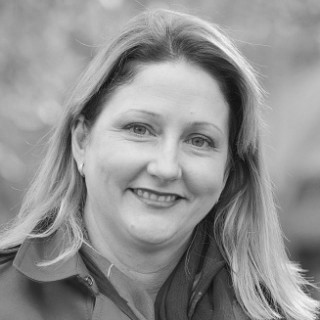Making palliative care a national health priority
Australia lacks enough quality palliative care, and I hope to see this situation improve.
I successfully moved a motion in the Senate today, calling on the Government to make palliative care a health priority and appoint a national palliative care commissioner.
At the moment, only 14 per cent of people who wish to die at home are able to do so. We need to do better that this. Every Australian who is facing the end of their life and who wants to die at home should be given the choice and dignity to do so, where it is feasible.
More community‑based palliative care services are needed for a start. Palliative Care Australia has also argued that a national palliative care commissioner would examine existing palliative care services and programs nationally in order to assess their efficiency and effectiveness in supporting terminally ill individuals and their families to live as well as possible, right to the end of life.
Along with the successful motion, I also delivered the following speech in the Senate today:
As the saying goes; ‘nothing is certain except for death and taxes’. While taxes will always remain painful, death does not need to be.
Pain and symptom management, along with being surrounded by family, are most important to people who are dying. Australians deserve to die with dignity and be surrounded by the people they love.
Sadly, the wishes of thousands of gravely ill Australians to die without pain and surrounded by family is going unmet because palliative care services fall severely short in Australia and in particular South Australia.
Families are forced to helplessly watch someone they love die without receiving adequate care, pain relief, nursing support or information about end of life care options.
Palliative care helps terminally ill people live the end of their lives as fully and comfortably as possible. It can be provided at home, in hospitals or at aged care facilities.
The specialised care includes pain and symptom management, help for families to talk about sensitive issues and psychological and spiritual support for the patient and their loved ones.
Palliative care, especially in South Australia, has been ignored by the major parties for too long. Currently, it’s in the worst state it’s been in since 1980, when it was first implemented into the SA health system.
At present, the number of people wishing to die at home with the support of a community-based palliative care service far exceeds the availability of that care, particularly for those with illnesses other than cancer. For many, access to community-based palliative care is determined by where they live, rather than where they would prefer to die.
Palliative Care Australia, the peak body, estimates that while 70 per cent of Australians wish to die at home, only around 14 per cent do so.
South Australia lags behind the other states, with three out of four South Australians not getting access to palliative care. This is not good enough.
The Productivity Commission released its Draft Report in June 2017 which examined reforms to Human Services, specifically considering palliative care services, stating:
“Each year, tens of thousands of people who are approaching the end of life are cared for and die in a place that does not reflect their choice or fully meet their end‑of‑life care needs. Most people who die do so in two of the least preferred places — hospitals and residential aged care.
Their end-of-life journey will likely be punctuated with avoidable, or unwanted, admissions to hospital with the confusion, loss of dignity and loss of control that comes with it”.
Australians deserve better than this.
The Productivity Commission’s Draft Report argued that reforms in this area "should be a high priority for governments". The Nick Xenophon Teams agrees.
More community‑based palliative care services are needed to enable more people who wish to die at home to do so.
The Productivity Commission also argued that end‑of‑life care in residential aged care needed to be better resourced and delivered by skilled staff, so that its quality aligns with that available to other Australians.
There are just 213 palliative medicine specialists across Australia. That’s just one palliative medicine specialist is available for every 704 deaths each year, according to the peak body. This is unacceptable.
Inadequate funding of palliative care services is a major, and damning, cause of the pain and stress that terminally ill patients are forced to endure.
Many family members feel they have to go it alone in the last few weeks and months to ensure that their loved one has help to use the bathroom, to reach a drink, or have a wash and this causes a lot of strain at an already stressful time.
It is very traumatic for many families to see a loved one dying without access to adequate care and support.
Better funding for palliative care is essential. South Australia and other states desperately need to regenerate the investment in palliative care, so people can be supported to live, die and grieve well.
However, this Government must make palliative care a health priority. The current fragmentation of palliative care services in Australia needs addressing by appointing a National Palliative Care Commissioner.
A National Palliative Care Commissioner should examine existing palliative care services and programs nationally in order to assess their efficiency and effectiveness in supporting terminally ill individuals and their families to live as well as possible, right to the end of life and enable support in grief and bereavement.
Palliative Care Australia has outlined the role it envisages for a National Palliative Care Commissioner:
- Improve communication across jurisdictions,
- Facilitate consistent approaches to supporting the palliative care sector across all settings, including primary health, community health, tertiary health, aged care disability,
- In partnership with state and territory governments, assess the needs of different regions and populations, in particular Aboriginal and Torres Strait Islanders, rural and remote populations and Australia’s culturally and linguistically diverse populations,
- Facilitate harmonisation of end-of-life care planning laws,
- Examine existing palliative care services and programs across federal, state and territory governments, private and non-government sectors,
- Develop a national palliative care workforce strategy which includes aged care, tertiary care, primary health care and community-based care,
- Engage with states and territories to develop a palliative care data collection framework, and
- Oversee development of an implementation plan and monitoring and evaluation plan that underpins a National Palliative Care Strategy.
The job description for the National Palliative Care Commissioner is detailed and arduous. However, to fail to have a policy overhaul in the area of palliative care is not an option.
To quote English nurse and palliative care advocate Dame Cicely Saunders: “How people die remains in the memory of those who live on.”
We are all part of this story. We must do better. Death is inevitable but dying unsupported is not.
1. Recognises that:
(a) Access to appropriate pain and symptom management and being surrounded by family are most important to people who are dying;
(b) Palliative care is not just about pain and symptom management, it is about providing meaningful social, spiritual and emotional support for families and patients;
(c) For many Australians, their end-of-life journey will likely be punctuated with avoidable, or unwanted admissions to hospital with the confusion, loss of dignity and loss of control that comes with it;
(d) Australians need to be more engaged in conversations regarding their end-of-life care wishes, and
(e) Palliative care is not just about dying it is about living as well as you can for as long as you can.
2. Notes that:
(a) Palliative Care Australia estimates that while 70 per cent of Australians wish to die at home, only around 14 per cent do so.
3. Acknowledges that:
(a) the Productivity Commission’s draft report into Human Services, released in June 2017, argued that:
(i) There are just 213 palliative medical specialists across Australia, equating to one specialist for every 704 deaths each year;
(ii) More community based palliative care services are needed to enable more people who wish to die at home to do so, and
(iii) End of life care in residential aged care needs to be better resourced and delivered by skilled staff.
4. Further notes Palliative Care Australia’s call for a national palliative care commissioner who would examine existing palliative care services and programs nationally in order to assess their efficiency and effectiveness in supporting terminally ill individuals and their families to live as well as possible, right to the end of life.
5. Calls on all Senators to have an end-of-life conversation with their loved ones.
6. Calls on the Government to make palliative care a health priority and appoint a national palliative care commissioner.




Post your comment
Comments
No one has commented on this page yet.
RSS feed for comments on this page | RSS feed for all comments